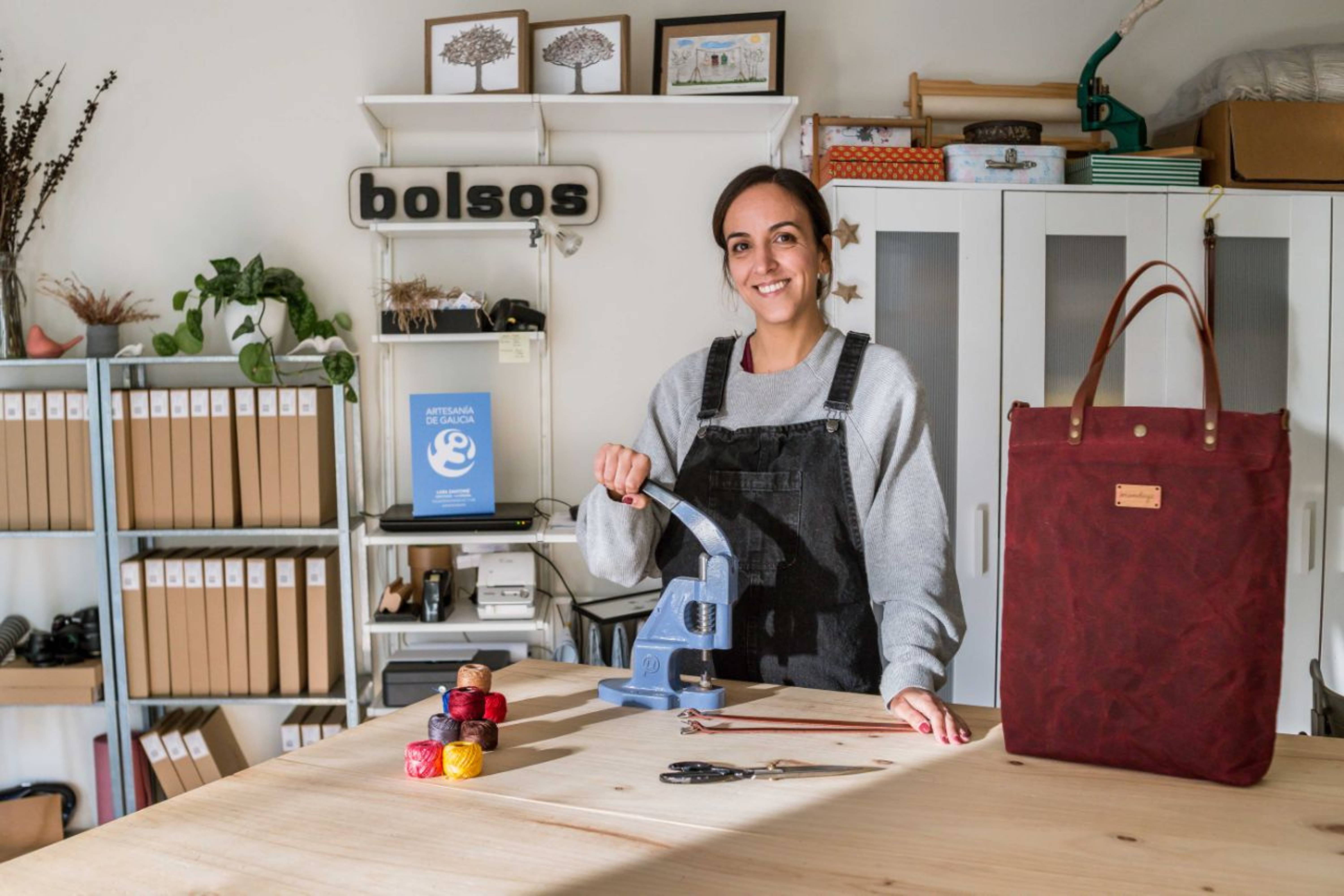
Latest information

Sustainable bags with an Atlantic soul
Behind Mundaya, a Galician brand of handmade bags based in Santiago, we find Lara Santomé. Very restless, she studied computer science, interior design and product design, but it was finally with a sewing machine that her partner gave her in 2010 when she found the perfect tool for her creativity.
Although as a child she had been in contact with sewing with her grandmother Lela, she began to experiment in a completely self-taught way. "Without having a clue, the first things I made were a sofa cover and a New Year's Eve dress," she recalls. Then curiosity led her to focus on bags. She dismantled several of them to see how they were made and then be able to replicate them, a whole process of deconstruction that helped her to learn, to discover how many pieces they were made of, what each one of them was for...
Coinciding with her studies in Product Design at the Escuela de Arte y Superior de Diseño Maestro Mateo, she decided to start applying all the knowledge she was acquiring to the construction and creation of her own brand. It was also at that time that she designed the first Mundaya bag: a piece for personal use specifically for going to class. "I was carrying a lot of things: laptop, mouse, charger, books, folders, scalimeter... I needed a bag with a lot of capacity and resistance", she explains. This need led her to research and discover fabrics such as waxed cotton, a natural material that offers lightness and impermeability, a property that is very important in Galicia.
In contrast to the concept of fast fashion, Mundaya proposes sustainable, functional and timeless bags, pieces with great versatility designed to be life companions for a long time. In fact, it works with models that it has been making for 8 years and that continue to be successful, such as one of its best sellers, the Alondra. The key to this timelessness, according to Santomé, is achieved "through simplicity, minimalism, a commitment to shapes that fit in with many different aesthetics when it comes to dressing and, of course, the use of materials that help to maintain durability over time".
Mundaya's designs arise from Lara Santomé's observation of the market trends she detects, but also from the contributions of the community of users of her social media profile, whom she asks twice a year what they miss, what they would like the brand to incorporate... In any case, a series of values intrinsic to the brand are always present. "First of all, the bag has to be functional, useful for everyday life. On the other hand, I try to make it as sustainable as possible. I try to make patterns that fit very well within the roll of fabric, so that there are few leftovers. And if they are left over, I take the opportunity to make a new, smaller product: a toilet bag, a pouch...", she explains.
Design, marking, cutting, tailoring... Everything is done in the workshop in Aríns (Santiago) in a handcrafted process carried out with great care and attention to detail. That is why no two Mundaya bags are the same.
What do Mundaya's customers value? Lara Santomé is clear: the relationship of trust that is established in the sales process and that is reinforced through the conversation generated through social networks. "Although the sale is online, I try to make the relationship with customers as similar as possible to that of a neighbourhood shop". In addition, he detects that people also value more and more the commitment to the local and to what is made here". In fact, Mundaya is one of the brands adhering to the Artesanía de Galicia seal. "It offers a lot of added value. More and more people from outside Galicia are recognising the brand and being registered gives you support and quality status".
On the future and after launching a new branding for the brand, he maintains that it is always important to have a point of ambition and that "the next steps are to become bigger. This year I managed to reach one shop in Canada and two in the United States. This is very encouraging and encourages you to keep working".